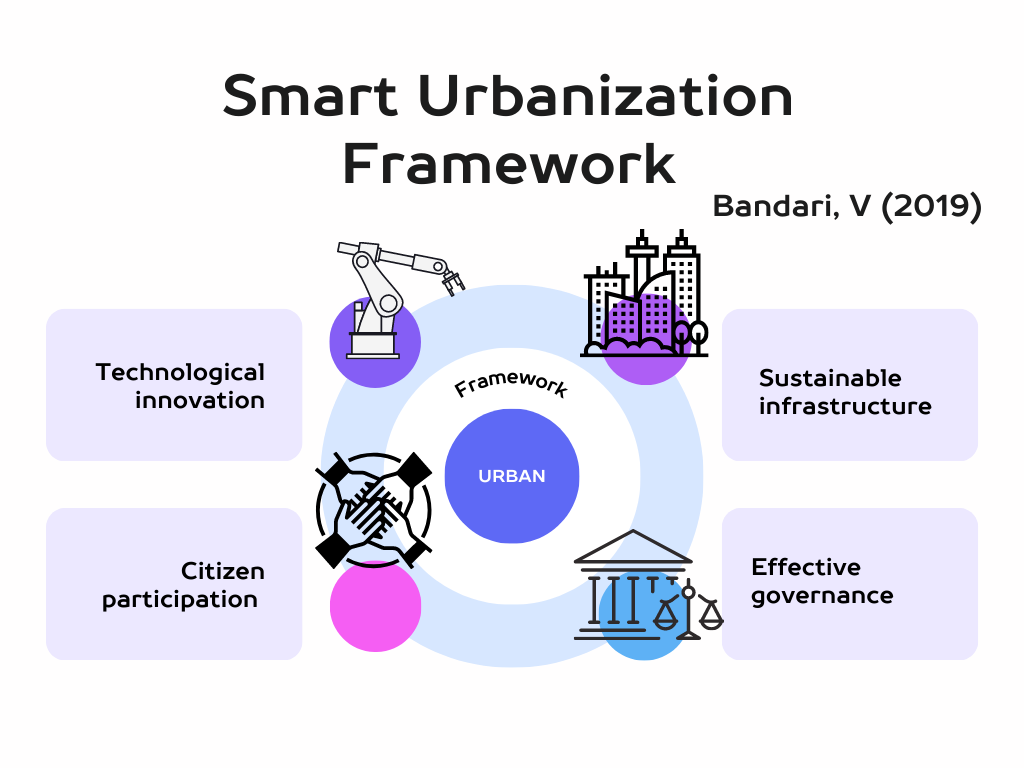BEYOND TECHNOLOGY: A HOLISTIC FRAMEWORK FOR SMART URBANIZATION IN DEVELOPING COUNTRIES
Abstract
The concept of smart urbanization has gained significant attention in recent years, particularly in developing countries where urbanization rates are increasing rapidly. However, the implementation of smart urbanization initiatives in these countries has faced significant challenges, including the lack of coordination and integration across different sectors, limited financial resources, and a lack of technical expertise and knowledge. To address these challenges, a conceptual framework for smart urbanization is proposed that consists of four components: technological innovation, citizen participation, sustainable infrastructure, and governance. The first component of the framework emphasizes the deployment of advanced technologies to enhance the efficiency, safety, and sustainability of urban infrastructure. This includes the use of IoT devices, data analytics, artificial intelligence, and other cutting-edge technologies to optimize energy consumption, waste management, traffic control, and public safety. The second component emphasizes the active involvement of citizens in the smart urbanization process through digital platforms, community engagement programs, and open data initiatives. The third component focuses on the development of sustainable infrastructure that minimizes the environmental impact of urbanization, including the use of renewable energy sources, green buildings, efficient water management systems, and sustainable transportation options. The fourth component emphasizes the need for effective governance structures that ensure the successful implementation of smart urbanization initiatives, including the establishment of clear policies and regulations that encourage innovation, protect citizen rights, and ensure accountability. The proposed framework can provide a roadmap for developing countries to plan and implement smart urbanization initiatives in a coherent and holistic manner. By addressing the challenges faced by developing countries, such as lack of coordination and integration, limited financial resources, and a lack of technical expertise and knowledge, the framework can ensure that smart urbanization initiatives are sustainable, scalable, and responsive to the evolving needs of the community.
